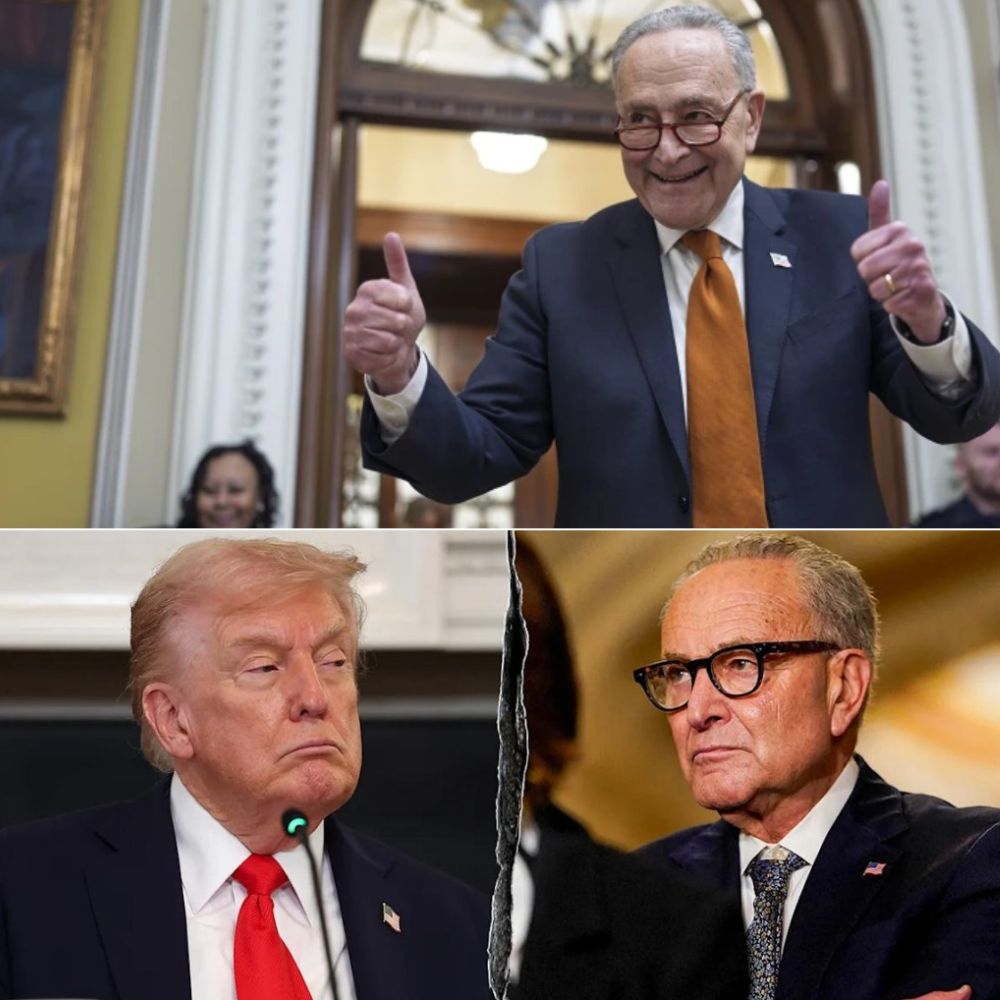Schumer Blocks 12th GOP Attempt to Reopen Government as Trump Claims Democrats Have “Lost the Fight”

The federal government shutdown stretched into its 22nd day on Wednesday, with no clear path to resolution, after Senate Democrats blocked a 12th Republican attempt to reopen the government. The latest vote failed 54–46, falling short of the 60-vote threshold needed to advance. The stalemate underscores deep divisions over healthcare policy and negotiation strategy between congressional leaders and the White House.
A Shutdown Driven by a Healthcare Standoff
At the core of the impasse is a dispute over expiring Affordable Care Act subsidies, often referred to as enhanced Obamacare subsidies. Senate Democrats, led by Minority Leader Chuck Schumer of New York, say they will not support reopening the government without a “real, ironclad” deal to extend those subsidies, which they argue are essential to stabilizing premiums and protecting Americans’ access to healthcare.
Republicans, led on the Senate side by Majority Leader John Thune of South Dakota, say the only way forward is to first reopen the government, after which policy matters—including a vote on the subsidies—can be considered. A White House official reinforced that stance, telling Fox News Digital, “We will not have policy conversations while the Democrats are holding the American people hostage. Reopen the government.”
Merkley’s Marathon Speech and Democratic Messaging
The failed vote followed a nearly 24-hour filibuster by Sen. Jeff Merkley (D-Ore.), whose floor speech began at 6:23 p.m. Tuesday and concluded at 5:00 p.m. Wednesday. Merkley used the marathon session to critique what he called authoritarian tendencies within the Trump Administration, including its approach to immigration and the separation of powers.
“Republicans have shut down the government to continue the strategy of slashing Americans’ healthcare,” Merkley said, framing the shutdown as a direct product of GOP opposition to extending ACA subsidies. Democrats argue that without guaranteed action on healthcare, reopening the government would merely postpone the fight and further erode leverage needed to secure consumer protections.
Schumer Seeks Direct Talks with Trump
In a bid to break the cycle, Schumer—speaking on behalf of House Minority Leader Hakeem Jeffries (D-N.Y.)—requested another meeting with former President Donald Trump before Wednesday’s vote. The move appeared aimed at bypassing Senate Republicans to strike a broader agreement.
“Hakeem and I reached out to the president today and urged him to sit down and negotiate with us to resolve the healthcare crisis, address it and end the Trump shutdown,” Schumer said. “He should sit down with us, negotiate in a serious way before he goes away.”
However, Trump’s position remains firm: no negotiations until the government is reopened. Republicans insist they have offered Democrats a “normal appropriations process” and a chance to vote on expiring subsidies once the shutdown ends. “I think [Trump] wants the Democrats to take ‘yes’ for an answer,” Thune said. “We’ve offered them a lot of the things they were asking for… But that can’t happen until we open up the government.”
Informal Talks, No Breakthrough
Despite reports of informal conversations between the parties, there has been little progress toward a compromise. Democrats have declined Thune’s offer for a post-reopening vote on the subsidies, holding out for guarantees they say are necessary to protect constituents from rising costs and coverage instability. Republicans, meanwhile, view the Democrats’ demands as an attempt to leverage the shutdown for policy wins, a tactic they argue is harmful and unsustainable.
The Political Calculus
Both sides appear dug in. For Democrats, locking in the continuation of enhanced ACA subsidies is a core priority—one with immediate and tangible effects on household budgets and health coverage. For Republicans and the White House, conceding to policy demands under the pressure of a shutdown risks setting a precedent they find unacceptable, potentially inviting future brinkmanship.
The political risk is shared. Prolonged shutdowns erode public confidence, disrupt federal services, and inflict economic costs, but each side believes the public will ultimately blame the other. Democrats are branding the impasse as a “Trump shutdown,” pointing to the White House’s refusal to negotiate while the government is closed. Republicans counter that Democrats are “holding the American people hostage” by conditioning reopening on their healthcare demands.
What’s at Stake
– ACA Subsidies: The enhanced subsidies lower premiums for millions of Americans. Their expiration would likely result in higher costs and reduced coverage, especially for lower- and middle-income families.
– Government Services: A 22-day shutdown strains agencies, delays pay for federal workers, and disrupts services ranging from small business loans to routine regulatory functions.
– Negotiation Norms: The outcome may shape the playbook for future budget fights—whether policy concessions can or should be extracted under shutdown pressure.
Possible Paths Forward
– Reopen-Then-Negotiate: Republicans’ preferred route—end the shutdown, then hold votes on subsidies. This requires Democrats to trust the process without firm guarantees.
– Pre-Commitment Deal: Democrats’ demand—a binding agreement on subsidy extension before reopening, which would represent a significant concession by Republicans.
– Narrow Interim Measure: A short-term reopening paired with a scheduled, time-bound vote on subsidies. This middle path could break the deadlock if both sides accept enforceable timelines.
– Outside Pressure: Public opinion, economic indicators, or stakeholder pressure (insurers, hospitals, governors) could push both sides toward compromise.
Outlook
For now, the Senate remains locked in a repeating cycle of failed votes and hardline statements. Without a shift in strategy or a face-to-face breakthrough, the shutdown’s duration may stretch further, increasing the costs to federal workers and the broader public. The central question is whether either side will accept a procedural compromise that preserves their core objectives: for Democrats, an ironclad guarantee on healthcare subsidies; for Republicans and Trump, a reopening before any policy concessions.
Until that gap is bridged, the shutdown continues—with healthcare, governance norms, and political accountability all on the line.